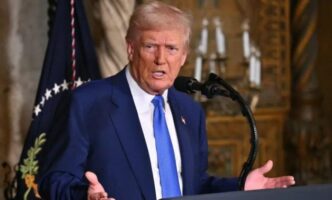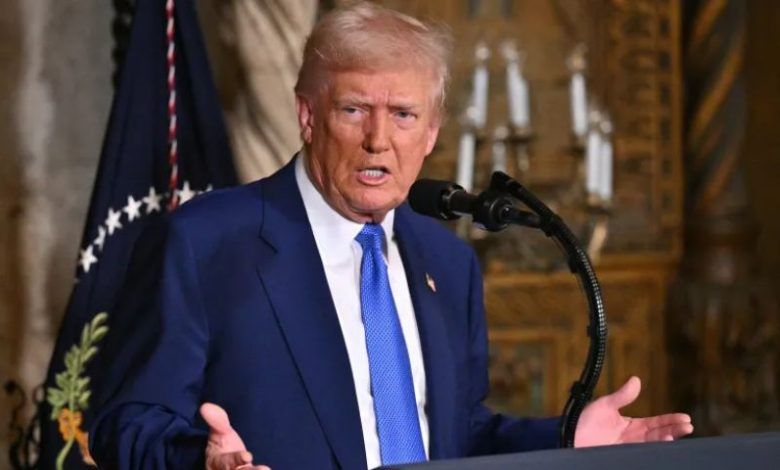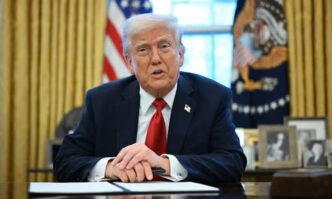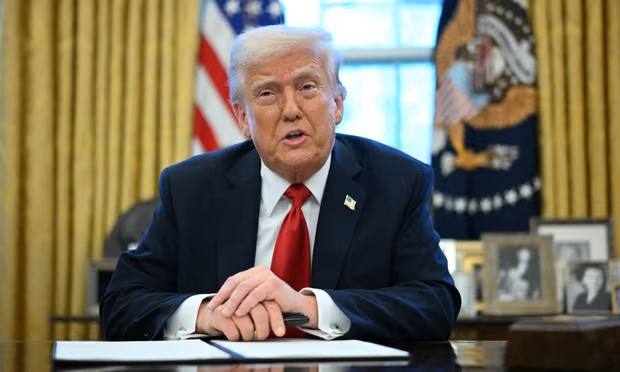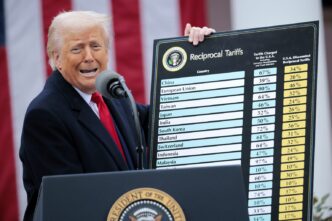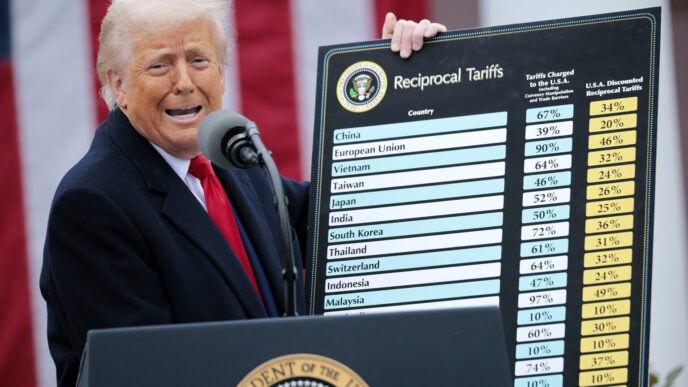In a significant trade policy shift, U.S. President Donald Trump has confirmed that the tariffs set to be imposed will apply to all countries, rather than just those with the largest trade imbalances with the United States.
Speaking aboard Air Force One on Sunday, Trump stated that the tariffs would “start with all countries,” putting to rest speculation that only a select few nations would be affected.
His administration has long argued that these measures are necessary to counter what it perceives as unfair trade practices.
“You’d start with all countries, so let’s see what happens,” Trump told reporters, making it clear that the tariffs would not be limited to a “Dirty 15” list of nations with persistent trade deficits, as previously suggested by Treasury Secretary Scott Bessent.
“I haven’t heard a rumor about 15 countries, 10 or 15,” he added when asked which nations would be targeted. “Essentially all of the countries that we’re talking about. We’ve been talking about all countries, not a cutoff.”
The announcement has raised concerns among global leaders and economists, with fears that widespread tariffs could spark a trade war and lead to inflation.
However, Trump maintained that the tariffs would still be “more generous” compared to those imposed on the U.S. by other nations.
“The tariffs will be far more generous than those countries were to us, meaning they will be kinder than those countries were to the United States of America over the decades,” he said.
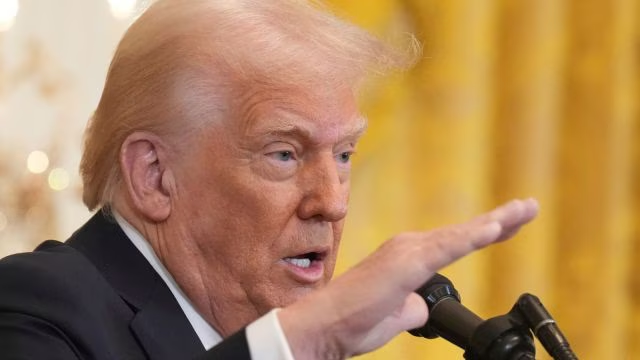
“They ripped us off like no country has ever been ripped off in history and we’re going to be much nicer than they were to us. But it’s substantial money for the country nevertheless.”
The upcoming tariffs will impact various industries, including steel and aluminum, which have already been subject to U.S. import levies.
Additionally, new tariffs on auto imports are expected to take effect on April 3.
Peter Navarro, Trump’s chief trade adviser, estimated that the tax on imported autos could generate $100 billion annually.
“And in addition, the other tariffs are going to raise about $600 billion a year, about $6 trillion over a 10-year period,” Navarro stated in an interview with Fox News.
Despite warnings from economists that these tariffs could lead to increased costs for consumers and businesses, the Trump administration has defended the policy as a means to strengthen the U.S. economy and manufacturing sector.
The global response to the tariffs remains uncertain, with some countries already threatening retaliatory measures.
As nations prepare for the financial impact, analysts suggest that governments should strategize to minimize economic disruptions while ensuring growth within their own industries.
With the April 2 announcement fast approaching, the world waits to see how the tariffs will reshape international trade and whether they will achieve the Trump administration’s goal of boosting U.S. revenue and reducing trade deficits.
